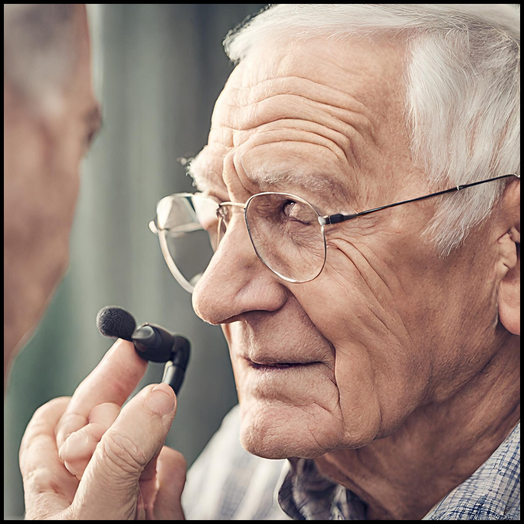Understanding the Relationship Between Depression & Hearing LossEmbarking on a journey into the intricacies of mental health, we explore the fascinating link between depression and hearing loss. The connection between these two aspects of our well-being is more profound than we might realize. Let's unravel the complexities in a straightforward way to grasp how our emotions and our ability to hear are intertwined. Depression in a NutshellFirstly, what is depression? It goes beyond the occasional sadness; it's a persistent mood disorder that can significantly impact various facets of our lives. Think of it as a heavy cloud overshadowing our emotions, affecting energy levels, thoughts, and overall mental outlook. Hearing Loss and Emotional ImpactNow, let's delve into hearing loss. Did you know that our emotional state can be connected to what happens in our ears? Hearing loss is not just a matter of reduced auditory capabilities; it can also be linked to feelings of loneliness or sadness. When hearing becomes challenging, connecting with others may suffer, influencing our emotional well-being. Scientific InsightsScientists have explored this connection, and their findings are intriguing. Some studies suggest that individuals with untreated hearing loss may be more prone to experiencing depression. It's as if our ears and emotions are engaged in a subtle dance, where difficulties in hearing can echo into our emotional state. Social Isolation and Emotional HealthConsider this scenario: trying to engage in social activities without fully grasping the details. This is the reality for individuals facing hearing loss. Communication breakdowns can lead to social isolation, a significant factor associated with depression. The struggle to connect intensifies feelings of loneliness, contributing to emotional distress. Taking Proactive Steps for Emotional Well-BeingGiven this interconnectedness, what practical steps can be taken to address both depression and hearing loss? Regular hearing check-ups play a crucial role, enabling early intervention if issues arise. Additionally, fostering open conversations about our emotions with friends, family, or mental health professionals forms a vital support system for emotional well-being. Technological InterventionsTechnology emerges as a valuable ally in mitigating the impact of hearing loss on emotional health. Hearing aids and advanced devices are instrumental in enhancing auditory experiences, facilitating improved communication, and contributing to a more fulfilling life. Conclusion: Navigating Emotional ResilienceIn conclusion, the intricate dance between depression and hearing loss reveals a profound connection that extends beyond the surface. Taking care of our ears is not just about preserving auditory abilities; it's also about nurturing our emotional well-being. By embracing regular check-ups, fostering open conversations, and leveraging technological advancements, we empower ourselves to navigate the complexities of this intertwined journey. Let us strive for emotional resilience, creating a harmonious balance where mental health and auditory well-being coexist.
Comments are closed.
|
Archives
July 2024
Categories
All
|



 RSS Feed
RSS Feed
